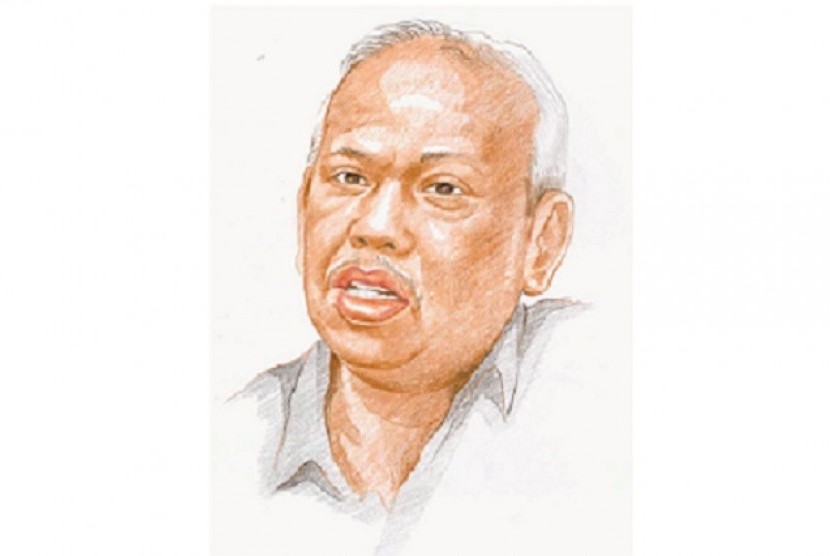REPUBLIKA.CO.ID, By: Azyumardi Azra
'Islam Archipelago', the latter term that currently found momentum in popularity, especially after Nahdlatul Ulama executive council (PBNU) made it the theme of the 33rd Congress of the NU in Jombang, East Java, on the next 1 to 5 August, 2015. The theme was exactly reads "Upholding Islam archipelago as a civilization of Indonesia and the World ". The terms and this theme –apart of several problematic things were very relevant and timely in the context of a national or international.
The term 'Islam Archipelago' also became discourse of Vice President Jusuf Kalla on various occasions. The last one, President Jokowi also used the term ‘Islam Archipelago’ on the opportunity at 'istighatsah kubra' which held by NU in Jakarta, June 14, in the framework of the National Conference of NU Ulema and welcoming Ramadhan 1436 H / 2015 AD.
The author of "Resonance" and then requested a response by BBC London about ‘Islam Archipelago’ which also mentioned by President Jokowi (Haedar Affan, The Polemic Behind the ‘Islam Archipelago’ term, BBC London, June 15, 2015). What is the meaning of ‘Islam Archipelago’ term? Is this term something new?
In the international seminar NU pre-congress held by Kompas Daily (May 25, 2015) and the Committee of the 33rd Conference of NU, the author of "Resonance" was trying to explain the meaning of the term ‘Islam Archipelago’. The term contains concepts and different connotations when applied to different regions of the archipelago.
The term ‘Islam Archipelago’ was basically not new. This term referred to Islam in the archipelago or maritime continent (archipelago) which include not only the area that is now the state of Indonesia, but also Muslim region of Malaysia, southern Thailand (Patani), Singapore, South Philippines (Moro), and also Champa (Kampuchea).
With the coverage like that, ‘Islam Archipelago’ are equals congruent with the ‘Southeast Asian Islam’. Academically, the last term was often used interchangeably with 'Malay-Indonesian Islam’. The problem then, was it talks about ‘Islam Archipelago’ or 'Southeast Asian Islam' or 'Malay-Indonesian Islam'? Is ‘Islam Archipelago’ has the distinction, both at the level of normative doctrine and social life, culture, and politics?
In the view of the author of "Resonance", normatively doctrinal, ‘Islam Archipelago’ was adhere to the Six Pillars of Faith and the Five Pillars of Islam which were similar to the other Ahlus-Sunnah wal-Jama'ah (Sunnah or Sunni) in any part of the Islamic world as agreed by majority authoritative scholars.
However, to a certain extent, the ‘Islam Archipelago’ has its own distinction. This fact could be seen from, for example, Islamic orthodoxy archipelago well-established formed, especially since the 17th century when Jawi students like Nuruddin ar-Raniri, 'Abdurrauf al-Singkili, and Muhammad Yusuf al-Maqassari back to the archipelago after studying for nearly two decades and involved in the ‘networks of ulema', based in Mecca and Medina.
The orthodoxy of Islamic archipelago was simple has three main elements, the first, kalam (theology) Asy'ariyah; second, Shafi'i fiqh - though also received three other fiqh madhhab of Sunni; Third, Sufism of al-Ghazali, both practiced individually or communally or through a more organized and completed of tariqah of Sufi with murshid, caliphs and students, and the ordinances of certain dhikr.
As a comparison, the orthodoxy of Islamic archipelago is in contrast to Saudi Arabia's Islamic orthodoxy. In two conferences with the circles of scholars and intellectuals of Saudi Arabia in Riyadh and Wadi about 300 kilometers from Riyadh (3-7 / 1), the author of "Resonance" stated, Saudi Arabia's Islamic orthodoxy contains only two elements, namely first, kalam (theology) of Salafi-Wahabi with Islam literal understanding and emphasis on Islam are 'pure'.
With a view of kalam like that, in the perspective of the doctrine of Saudi Arabia's Islamic orthodoxy, do not be surprised if a lot of other Muslims regarded as bid’ah dhalalah (misguided additional ritual) that will take them to hell. Including into bid’ah dhalalah is celebrating the Prophet Muhammad's Birthday which celebrated crowded by Indonesian Muslims.
Second, Saudi Arabia's Islamic orthodoxy elements were Hanbali fiqh which was the most stringent madhhab in the Islamic jurisprudence. Saudi Arabia's Islamic orthodoxy did not include Sufism, Sufism was rejected precisely because it contained a lot of bid’ah dhalalah.
In both of these conference always appeared the question of Saudi Arabia participants which addressed to the author of "Resonance". "Why do Muslim Indonesia likes to practice Sufism which contains a lot of bid’ah dhalalah?”.
This question could be understood which were departing from bias and prejudice against Sufism which in fact historically played an important role in increasing stages of Muslim spirituality and at the same time maintenance of Muslims integrity to face various challenges and historical reality.
Saudi Arabia Salafi-Wahabi Islamic orthodoxy was too dry and simple for Muslims in the archipelago. The Muslim people of the archipelago have been and continue to undergo the heritage to practice Islam which is rich and full of nuances. Author of "Resonance" is referred to it as ‘flowery Islam’ with a 'ritual' since Tahlil, nyekar (scattering the flowers to the grave) or pilgrimage the grave, walimatus-Safar (walimatul haj / Umrah), walimatul khitan, tasyakuran up to four monthly or seven monthly pregnancies.


